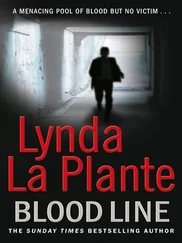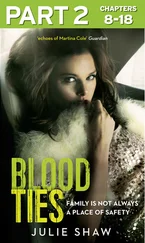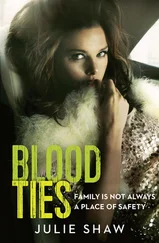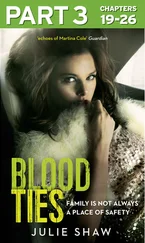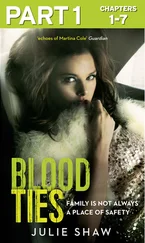No, this sadness today wasn’t like being upset over the loss of a close relative – it was more a kind of emptiness for a time that had passed. Charlie’s death represented a lost age, the end of something. Vinnie felt it and he was sure that all the others did too.
But he wasn’t one for melancholy, any more than he was one for funerals. And, looking around him, he grinned to himself again. It probably wouldn’t be a bad day out, this, all told. Yes, he’d had to sit through three hymns and a long boring sermon – not to mention having to listen to the divvy priest utter a load of crap about what a ‘stand-up’ guy Charlie was – but, looking at this lot, he realised the wake might actually be okay.
His mam had already told him it was going to be held at the Spicer Street Club, a brisk 15-minute walk away, and a place that had already played host to many family funerals, weddings and christenings. He couldn’t wait to get there. Who knew? It might not just be a good knees-up. There might be a punch-up or two as well.
Slightly cheered now – due respect to his uncle notwithstanding – Vinnie picked up the order of service he’d not looked at up to now. It was a simple affair, a single sheet of paper, folded in half. On the front was a picture of St Joseph’s and Charlie’s birth and death dates, and on the back they’d printed a black and white photograph of the old bugger. It wasn’t recent – not much danger of Charlie having posed for pictures in recent years, after all – but as Vinnie looked at it, it was like he was looking straight into the past. There were family resemblances, and there were family resemblances, and this family resemblance was staggering. Fuck’s sake! he thought, smiling to himself as the priest rabbited on. He looks just like me grannie Hudson in a suit!
Or, rather, did. Now Charlie was gone, it was like something important had died with him. It was the end of an era, the likes of which they’d probably never see again. The era of the Canterbury Warriors.
Part One
Bradford, April 1919
8 April 1919 was a defining day in history for the city of Bradford. It also marked the end of an era. The First World War had brought many social changes. With millions of young men called up to serve their country at its outset (with many more to come, to replace the injured and fallen) millions of women had stepped in to fill the employment gap.
It had been women who’d kept the city on its feet during the crisis – taking on jobs that were definitely not considered ‘women’s work’. It had been women who’d toiled in factories for the war effort, too, spending long hours on assembly lines, doing laborious, dangerous work. So-called ‘Canary Girls’, their reward for their toil in building countless shells and missiles was the tell-tale yellow skin of jaundice, due to constantly handling explosives.
But the war had now come to an end. This was to change everything, as the young demobbed troops needed their jobs back, and little by little the women who’d kept the home fires burning were being let go and sent home to care for their men. This naturally included the transport infrastructure, and 8 April saw a major social change. It was the last day a woman would punch the tickets on Bradford’s corporation trams – they wouldn’t be seen again as conductors for many years.
8 April was also a defining day for Annie McArdle. Eighteen years old, she had weathered (and often enjoyed) the war years, but today she was about to embark on a new journey. Today was the day that she’d walk up the aisle of St Joseph’s Catholic Church and vow to love, honour and obey her handsome beau, Reginald Harold Hudson, and their personal battle was about to begin.
‘Aww, Annie, love,’ Doris McGuire yelled as she threw a handful of rice at her old school pal. ‘You know what? You look like the cat that got the cream!’
‘Silly bugger!’ Annie replied, ducking to try and avoid the next shower of grains winging its way towards her. She hitched up her wedding gown to save it getting blackened in the dirt. She loved her dress – it had taken her mother weeks to sew up and she felt like a queen gliding around in it. She gave Reggie’s arm a quick loving squeeze. ‘Here, Doris,’ she joked. ‘It’s this fellow here that should be the one grinning. Luckiest day of his life, this is.’
‘Don’t show me up, woman!’ Reggie snapped as they made their way down the church. ‘And hell fire! I wish they’d knock it off with that bloody stuff!’
Narky bugger , Annie thought. And on their wedding day as well. Not that she was overly bothered. She knew that where Reginald was concerned she could give as good as she got – always had, always would – so he was just going to have to get used to it. They were married now and Annie intended to be just as brazen a wife as her mother had always been; not taking any nonsense off him ever.
She glanced at Reggie now, and her hand went immediately to her stomach. It was flat now – she was a slim girl – but it wouldn’t be for much longer. Which was okay – their hasty marriage wouldn’t seem unusual, not with all the servicemen coming home and rushing to wed the girls they’d been reunited with. But it had also shown her the kind of man Reggie was in that department; a man, to use her mother’s parlance, who expected to be serviced on demand. She’d have to nip that idea in the bud quick smart.
It was amusing, though, watching Doris and the rest of her friends giving her cheeky winks – implying that she was in for a great surprise tonight. Annie snorted at the thought. She’d already had that; the surprise being that, contrary to what everyone had told her – about it being a chore and a bind that she’d just have to get used to – she’d actually enjoyed it, rather a lot.
No, she thought, the surprise would come in seven months, near as good as. But hopefully it would be a late arrival so it wasn’t too blindingly obvious that she’d been such a wicked, wicked woman.
The wedding breakfast, which actually took place in the afternoon, was held at the McArdles’ house. Like the Hudsons, they lived on the Broomfields estate, and in the same row of small terraced houses that they rented from the corporation.
Usually a bit of a hovel, it had put on its best face for the day – swept out and cleaned sufficiently to be smart enough to receive guests, of which there were now 30 or so, all piling in through the narrow doorway, and falling hungrily on the feast of bread and dripping Annie’s mum had prepared, washed down with cupfuls of her dad’s mead.
Billy McArdle’s mead was a legendary tipple locally. Mostly because it was potent enough to be the cause of many a sore head, even after downing just a couple of cupfuls. Well, in today’s case, as was the case when there was any sort of occasion, jarfuls – many would be drinking from washed and scrubbed jam jars, there being far too few cups to go round.
But Billy’s mead was also famous because he was a bit of an enthusiast, often experimenting with flavours, depending on what kind of fruit he could nick from various gardens. Sometimes it was raspberry flavoured, other times scented with blackberry, but at this time of year there was little to add, so the wedding drink was just made with the usual honey.
‘A toast! A toast!’ he cried now, as he swung his mead upwards, and Annie felt her heart swell with love. She never really understood why her mam was so mean to him. To her he was a very fine man. ‘To our little Queen Annie and her prince charming, Reggie Hudson,’ he continued, beaming at them. ‘Long may they reign!’
Annie’s mum, Queenie, picked up her husband’s pipe from the stone fire top and puffed on it. ‘And good luck, my girl,’ she called across to her daughter. She roared with laughter then. ‘Because you’re gonna need it. Mark my words!’
Читать дальше

